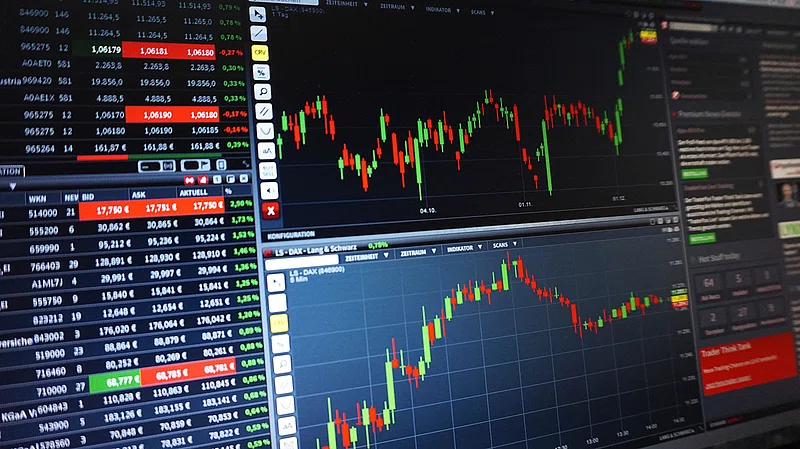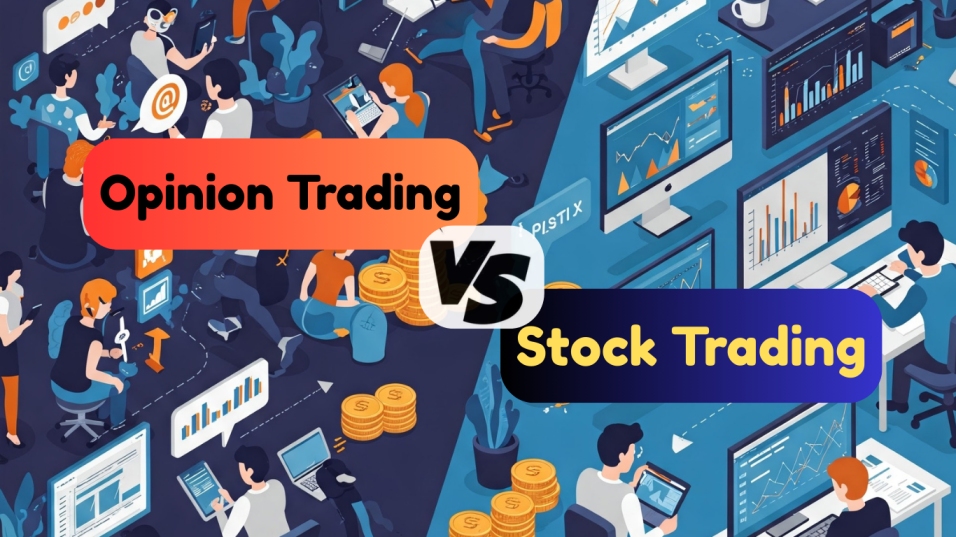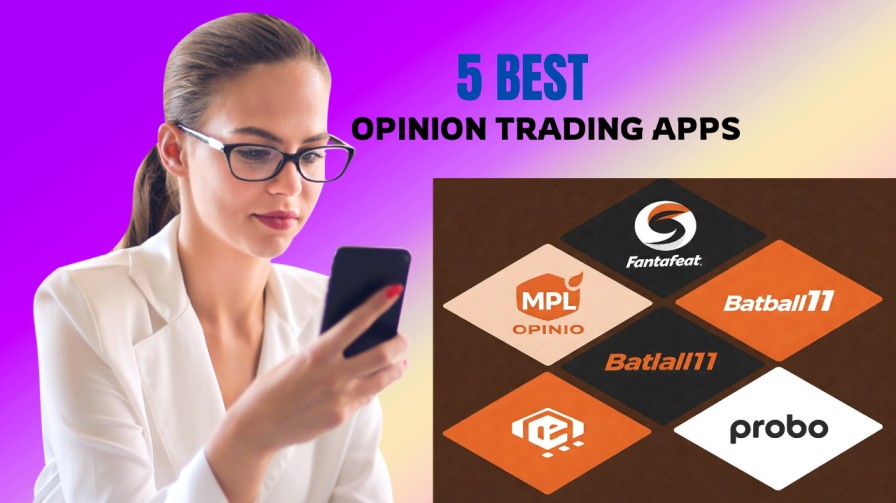Opinion Trading vs Stock Trading: Key Differences Explained
In today’s digital age, individuals have more ways than ever to monetize their opinions. Among the most talked-about are Opinion Trading vs Stock Trading. Both offer the potential for real rewards, but they operate in fundamentally different worlds — one rooted in market movements, the other in real-world predictions.
Opinion trading involves predicting what will happen, whereas stock trading involves selling and buying companies’ shares. Understanding how they differ can help you choose the path that best matches your skills and risk appetite.
What is Opinion Trading?

Opinion trading enables users to share their opinions and make predictions on what will happen in future events. Users can participate in various categories, including sports, entertainment, news, etc. Although it is gaining popularity globally, many people in India remain unaware of it and often confuse it with gambling.
The opinion trading game works like a stock trading platform, where individuals sell and purchase positions based on their expert opinions and prediction knowledge. Users have each position linked to an actual event, and they give their opinions by voting “yes” or “no” on what will occur.
What is Stock Trading?

Stock trading means buying and selling shares of companies that are available on the stock market. The goal is to make a profit when the prices go up and down. It is a way for people and big organizations to invest in companies and earn money as those companies grow.
Stock trading involves buying and selling shares of companies on a stock exchange. Traders aim to profit by buying shares at a low price and selling them at a higher price. Prices change based on company performance, market news, and investor demand. Stock trading involves risk and research.
Opinion Trading vs Stock Trading
Opinion trading and stock trading both involve predicting outcomes for potential gains, but they differ in their methods. Opinion trading involves making predictions about actual events happening in the world, such as sports outcomes or news events, with simple yes/no answers. On the other hand, stock trading involves purchasing shares of companies, which requires more in-depth research and financial investment.
Both opinion trading and stock trading involve strategic thinking and risk-taking, but they contrast strongly in several aspects.
Opinion Trading vs Stock Trading: Comparison Table
| Feature | Opinion Trading | Stock Trading |
| Underlying Asset | No real asset; prediction-based | Company Shares (ownership in business) |
| Capital Requirement | Low entry barriers | Moderate to high investment needed |
| Risk Level | Limited (depends on the amount staked) | High (market volatility and external factors) |
| Regulation | Light or emerging regulation | Heavily regulated |
| Skill Focus | Prediction and awareness | Financial analysis and economic trends |
| Time Frame | Short-term | Short-term or long-term |
| Return Potential | Fixed or dynamic payouts | Variable, based on share price movements |
| Complexity | Simple and user-friendly | Complex, requires continuous learning |
1. Underlying Asset
Opinion trading doesn’t entail owning any actual asset, you are just making predictions on results or future events. Stock trading does entail owning an interest in an actual company with its own valuation and market characteristics. Each share represents a piece of a living, breathing entity, rich with potential and influenced by the ebbs and flows of the marketplace.
2. Capital Requirement
Opinion trading websites usually enable you to begin with extremely small sums, even as little as ₹1. Invest as low as ₹1 on your skills or opinions and earn real money for your right prediction. On the other hand, stock trading typically demands a larger initial investment, particularly if you aim for quality stocks.
3. Risk Level
In opinion trading, the risk you take is predetermined and limited to your holding. Also, it depends on how well you understand the question and your knowledge about specific topics. Stock trading risk is more general; share prices can move unpredictably due to numerous factors, and losses can be huge if not controlled properly.
4. Regulation
Stock trading is heavily regulated to safeguard investors and ensure fair markets. Opinion trading, being relatively new, tends to fall under lighter or developing regulations in most jurisdictions.
5. Skill Focus
Opinion traders depend on instantaneous awareness, general knowledge, keen judgment, and users’ skills. Stock traders require strong financial literacy, technical analysis, and economic principles.
6. Time Frame
Opinion trades normally settle promptly – within a second or an hour, depending on the event’s timeframe. Stocks can be held for varying durations, from intraday to long-term investment over years.
7. Return Potential
Opinion trading tends to have fixed returns, which are known beforehand, whereas stock trading returns are market-based and can be extremely variable depending on market conditions.
8. Complexity
Opinion trading is simple and interactive, making it accessible for novices. Many platforms have simplified opinion trading, allowing users to discuss, learn, and earn. In contrast, stock trading is more complicated and requires constant learning and experience to perform consistently well.
Conclusion
Both Opinion trading and Stock Trading are thrilling prospects, but they are meant for different purposes and skill sets. Opinion Trading is suitable for those who love making fast predictions and less-risky interactions, whereas stock trading is more appropriate for those who want long-term wealth creation through well-researched investment plans.
It is up to the users to select the right platform based on their risk tolerance, financial objectives, and the time you can commit to learning and involvement.




